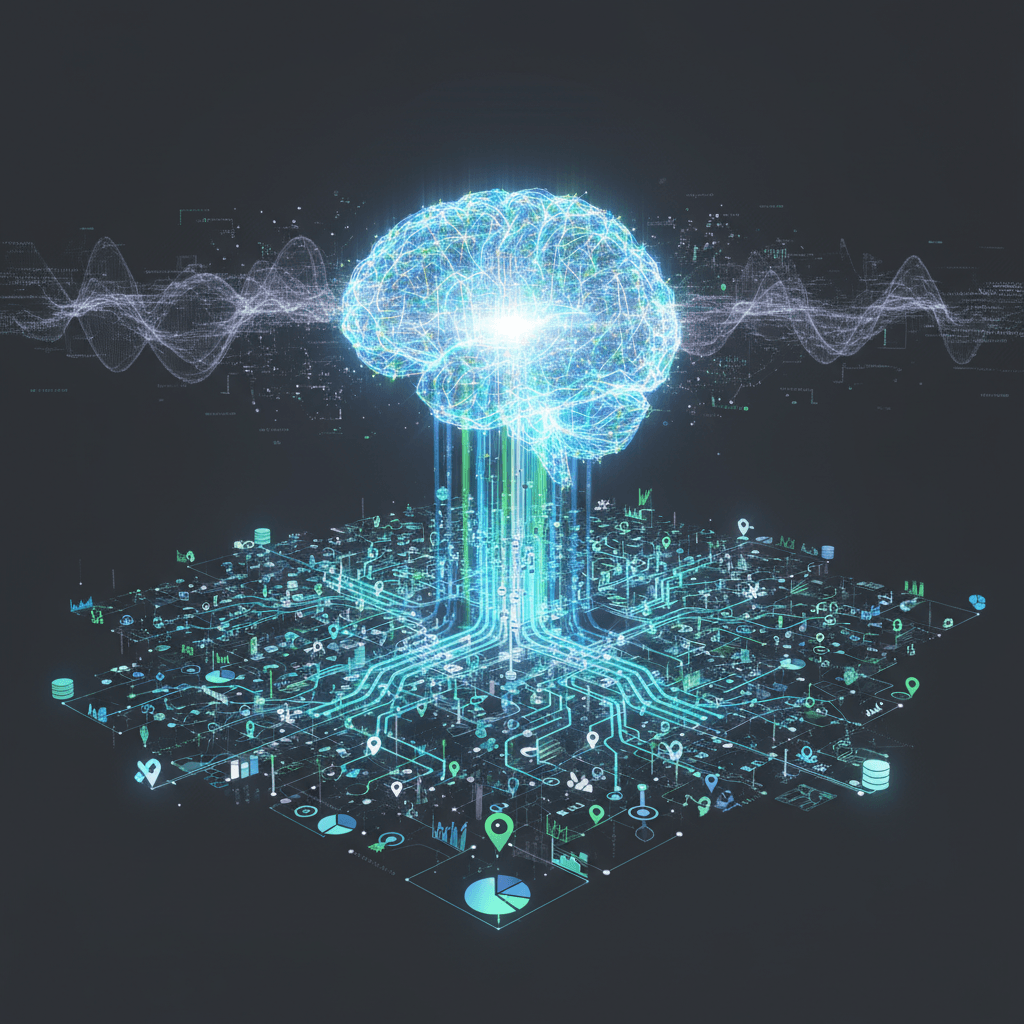Google Bolsters AI Reliability, Fights Hallucinations with Data Commons Server
Google's new MCP Server anchors AI in verifiable global data, directly combating hallucinations for more trustworthy, factual, and actionable insights.
September 25, 2025

In a significant move to bolster the reliability of artificial intelligence, Google has released the Data Commons Model Context Protocol (MCP) Server, a new tool designed to anchor AI models in the real world. This development makes the vast repository of global public data within Google's Data Commons instantly accessible to AI developers and applications through natural language queries. The primary ambition behind this release is to directly combat the persistent problem of "hallucinations" in Large Language Models (LLMs), where AI generates plausible but incorrect information. By providing a standardized way for AI agents to consume verified, structured data, the MCP server promises to accelerate the creation of more trustworthy, data-rich applications that can deliver factual, sourced information to users. This initiative represents a critical piece of infrastructure aimed at shifting the focus of AI from simply generating fluent text to providing verifiable and actionable insights grounded in reality.
The new release bridges two powerful concepts: Google's Data Commons and the open-standard Model Context Protocol. Launched in 2018, Data Commons is an ambitious project that synthesizes petabytes of public data from hundreds of sources—including the United Nations, World Health Organization, U.S. Census Bureau, and many other governmental and research bodies—into a single, interconnected knowledge graph.[1][2][3] The project tackles the immense challenge of data fragmentation, where critical information on topics from economics and climate to health and demographics is scattered across countless sources in disparate formats.[2][3] While this data is publicly available, accessing and harmonizing it has traditionally required significant technical expertise.[1] The Model Context Protocol, or MCP, addresses a similar challenge in the AI space. Originally developed by the AI startup Anthropic, MCP is an open-source framework that provides a universal, standardized protocol for AI models and agents to connect with external data sources, eliminating the need for developers to build complex, custom integrations for each new dataset.[4][5][6]
The integration of these two initiatives via the new MCP server provides a streamlined and powerful workflow for developers. It effectively creates a natural language interface for the entire Data Commons knowledge graph.[1][7] Instead of writing complex API calls, a developer can now build an AI agent that asks questions in plain English, such as, "Compare the life expectancy, economic inequality, and GDP growth for BRICS nations."[8][9] The MCP server interprets this query, fetches the relevant structured data tables and statistics from Data Commons, and provides them as context to an LLM like Gemini.[8][10] This process dramatically speeds up the development of sophisticated, agentic AI systems capable of performing complex data analysis and generation tasks.[8][11] Google has integrated the server to work seamlessly with its agent development tools, including the Agent Development Kit (ADK) and Gemini command line interface (CLI), and provides resources like Colab notebooks to help developers get started.[8][12][10]
The most significant implication of this release is its direct assault on the problem of AI hallucination. LLMs are trained on vast quantities of text from the internet, and while powerful, they often generate outputs by predicting the next most likely word rather than consulting a factual database. This can lead to the invention of facts, figures, and sources.[5][13] The Data Commons MCP Server addresses this fundamental flaw by grounding AI responses in high-quality, verifiable information.[1][12] When an AI agent uses the server, it isn't just relying on its internal, unverified training data; it is actively retrieving real-world statistics from trusted, citable sources before generating an answer.[8] This approach, a form of Retrieval-Augmented Generation (RAG), provides a factual foundation that significantly improves the trustworthiness and reliability of the AI's output.[2][14] Google stated the capability is a key part of Data Commons' larger ambition: "using real-world statistical information as an anchor to help reduce Large Language Model (LLM) hallucinations."[8][11]
To demonstrate the real-world utility of this new tool, Google highlighted its collaboration with the ONE Campaign, a global organization that advocates for investments in economic and health opportunities.[8][9][4] This partnership led to the creation of the ONE Data Agent, an interactive platform built using the MCP server to explore complex global health financing data.[8][12][11] The tool allows advocates, policymakers, and researchers to search tens of millions of data points using natural language.[8][4] For example, a user can quickly ask to identify countries most vulnerable to cuts in foreign aid for health, a query that would traditionally require manually compiling and analyzing disparate datasets.[11] The agent can fetch the data, visualize it, and allow for the download of clean datasets for reports, effectively democratizing access to crucial information and enhancing evidence-based advocacy and policymaking.[8][4]
Ultimately, the public release of the Data Commons MCP Server is more than just a new tool for developers; it is a strategic move to build a more factual and reliable AI ecosystem. By removing the technical barriers to vast stores of public data and providing a standardized protocol for AI to access it, Google is enabling a new class of applications that can serve as trusted assistants for discovery and analysis. This approach moves beyond simply making LLMs more knowledgeable and instead focuses on making them more accountable by connecting their outputs to the underlying data. As AI agents become more integrated into professional and personal workflows, ensuring they operate on a foundation of verifiable truth will be paramount, and providing direct access to the world's public data is a foundational step in that direction.[12]